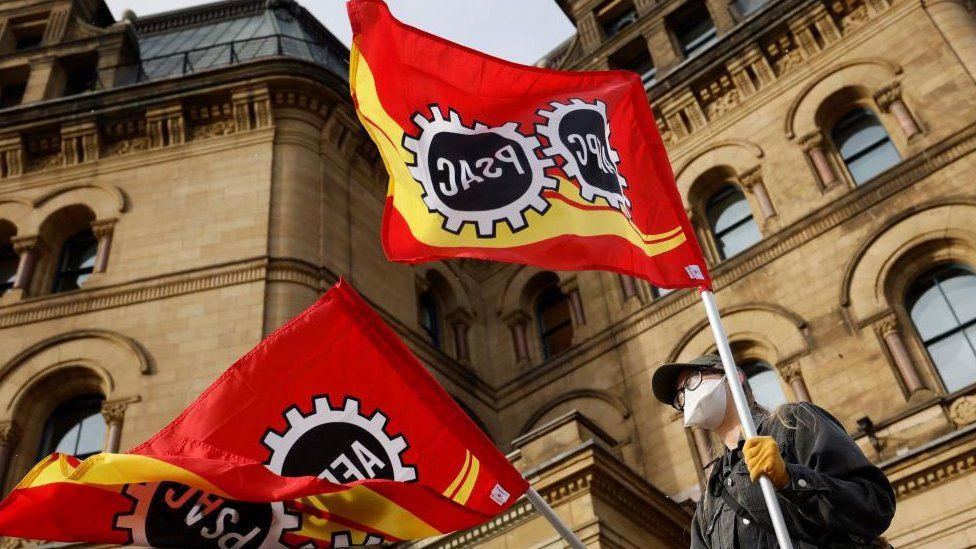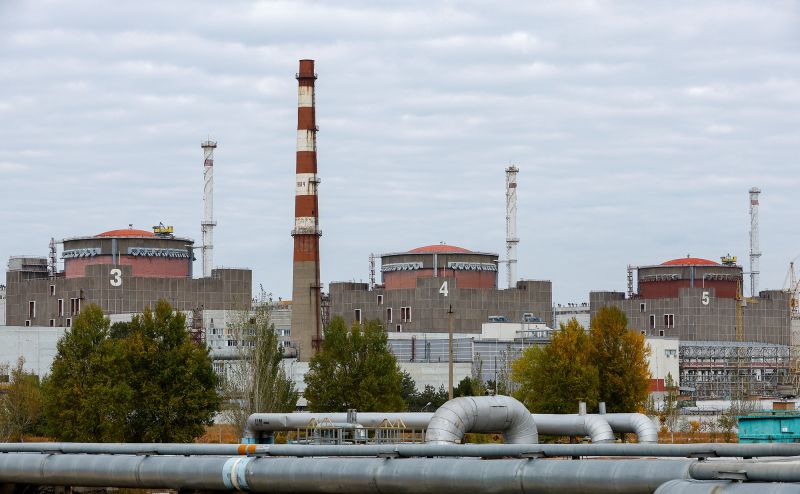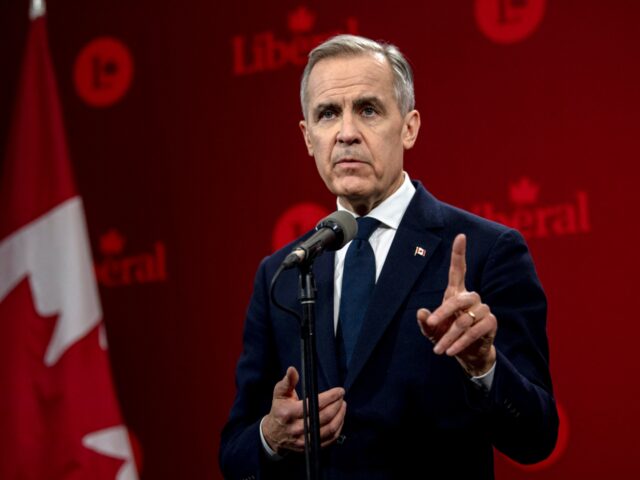Canada federal workers launch largest strike in decades

The largest strike in Canada in over three decades has seen more than 155,000 federal employees go on strike.
The union of federal workers has failed to reach agreement with the government over issues such as wages and working from home.
The shutdown is expected to impact a wide range of government services from passport renewals to tax filings.
Justin Trudeau, Prime Minister of Canada, has called for an immediate resolution.
|
The Public Service Alliance of Canada, the union that represents federal workers in Canada, started its strike early Wednesday morning at midnight local time, sending one third of the public sector employees to the picket lines.
The union claimed that it had “exhausted all other avenues to reach a fair agreement” with the government’s negotiators. The union added that an “overwhelming” majority of its members voted for a strike mandate.
The union president Chris Aylward stated that PSAC and government are still “a long way apart” in reaching an agreement.
Federal workers are asking for pay increases to keep pace with inflation.
Talks covers the two main groups of federal employees – 120,000 under Canada’s Treasury Board, and 35,000 for the tax agency.
The government proposed a 9% increase in wages over three years. However, the union requested a larger increase during the same time period.
The tax workers originally sought a salary bump of over 30% over three-years, while the second group wants a pay increase of 13.5% over the same time period.
The union also tried to reach an agreement regarding remote work despite the recent directive from the Treasury Board, which asked that public servants return to their offices at least two days per week.
In a Tuesday night statement, the government claimed that it has done “everything possible to reach an agreement and avoid disrupting services that Canadians depend on”.
Included in this are proposals for work-from home, paid family leave and diversity measures.
The government stated that “even though there was a deal available, the PSAC continued to insist on unaffordable demands which would severely affect the Government’s capability to provide services to Canadians.”
Mona Fortier of the Treasury Board struck a more positive tone with reporters on Wednesday. She told them that she was confident “some progress” will be made as long as negotiations continue.
On Wednesday, Trudeau called on both sides to come to an agreement. He said that he supports the right to strike, but warned “Canadians would lose patience if this drags on”.
Trudeau stated that Canadians deserve and have the right to receive the services they require from the federal government.
The strike could have a negative impact on Canadians in all parts of the country as well as immigrants who are looking to move to Canada.
As a result, there will be delays and backlogs in passport and immigration applications.
Tax agency, the Canadian Revenue Agency (CRA), will also be facing delays in April, just before a national deadline of 30 April for filing annual income tax returns.
The government claims that travel and the flow of goods to Canada will not be disrupted.
The last strike on this scale occurred in 1991. The legal action at the time delayed grain shipments and flights, as well as cross-border travel.
After the Canadian government passed mandatory legislation, federal employees returned to work.









No Comments